Western Christian civilization — Catholic civilization — took a quantum leap in the middle of the 1300s. Historians call this the Late Middle Ages. Most of us call this the Renaissance.
When we think of the Renaissance, we usually think first of Italian artists. And I’ll focus on the culture of the Renaissance in my next two posts.
But cultural works were only one aspect of the Renaissance. There was something deeper going on — spiritually, intellectually, and socially.
Because they advocated the restoration of the humanities — umanisa — the civic-minded Christians of the Late Middle Ages have been called “humanists”. But the leading lights of the Renaissance weren't secularists, so their movement should be called Civic Christianity.
Civic Christianity began with three pioneers: Petrarch, Bruni, and Alberti.
Francesco Petrarch (1304-74) was keenly aware of his passions, his intellect, and his soul. In Petrarch's view, while the superior part of our soul is with Christ, Christians ought to appreciate natural and social phenomena too.
Leonardo Bruni (c. 1369-1444) went beyond Petrarch in advocating an active life with one’s family, business, and city-state.
Leon Battista Alberti (1404-1472), an aide to the Pope, was the first Western Christian in a millennium to write comprehensive treatises on ethics.
In Italy in the 1400s there were many “Petrarchs,” producing books like Pietro Paolo Vergerio’s 1402 On the Conduct of Honorable Men. It was Marsilio Ficino (1433-99), an educator in Florence, who did the most to revive exalted Platonic ideals of eternal love and beauty. Pico della Mirandola (1463-94) declared that the human being alone is free to shape his or her personality and life.
In his popular books, Desidirius Erasmus (1466-1536) emphasized trust in Christ and a life of simple truth, serious moral piety, sincere prayer, love, charity, and joy — and championed, at the same time, civic duties, education, self-knowledge, self-improvement, accurate thinking, reason and reasonableness, tolerance, and magnanimity.
With a deep sincerity of purpose, Erasmus stood up against superstition, corruption, abuses, immorality, hypocrisy, error, and barren and contentious dialectic in Christianity. He advanced a genuine, earnest Christian spirituality rooted in the pristine truth found in the teachings of Christ, the spiritual meaning of the Bible, and Early Christianity. His faith was a life of constantly acting on the truth while aided by Christ and animated by interior love for Christ.
In 1512, Erasmus and professor John Colet made a pilgrimage to Thomas a Becket’s grave in Canterbury. Both were revolted by the sale of relics, including a rag allegedly dipped in Becket's blood. When Colet was offered Becket's shoe to kiss, he exploded with contempt. Medieval credulity was giving way to Renaissance scrutiny.
Erasmus linked Europe in a new web of personal contacts, correspondence, printed books, and translations. He helped link Italy, Germany, France, England, the Netherlands, and Spain in a common Civic society and Renaissance culture.
Civic Christianity began as a revival of ancient Greco-Roman thought.
In the centuries before the 1400s, Aristotle’s Ethics had not been neglected. Now Catholics saw more relevance in it. Added to it were Cicero’s two treatises On Public Duties and On the Orator, Quintilian’s Education of an Orator, parts of Plutarch’s Moralia, and Seneca’s moral-philosophical tracts.
The essence of Roman moral philosophy was to reach for high ethical standards while living usefully and enjoyably in one’s larger communities. Cicero’s view of the public obligations of wise, educated people became the touchstone of the new Civic Christianity. And the Roman sense of all-round competence became a hallmark of Renaissance life.
Cicero and Quintilian outlined the qualities of character and mind that best suit people to meet the challenges of the world. Cicero, Seneca, and other Stoics emphasized right versus wrong, self-control over the passions, courage without recklessness, endurance, and a noble dignity even in the face of adversity — being intrepid and constant even amid the blows of the world.
Along with this went Aristotle’s Ethics. Aristotle advocated perfecting oneself in the virtues of reason, justice, prudence, temperance, and fortitude while engaged in family, community, and civic life.
From Plato, the new Civic Christians drew a deeper sense of Divine Love and Divine Beauty reflected through pure spiritual love and true spiritual beauty. Platonic Christianity was always aware that a human being can be lifted up into the spiritual and closer to the Divine.
The Civic Christians were also affected by written profiles of exemplary ancient Greeks and Romans. They were tantalized by Plato’s ideal for the development of a philosopher-king in The Republic V-VII. They drew strength from Plutarch’s Lives.
In the 1400s and 1500s, no one doubted that adding these personal and social Greco-Roman ethics to pious Christian morals would make you even better prepared to meet God and to be judged to have led a good life. Convinced that the ancient Greeks and Romans had done almost everything with vigor and excellence, Renaissance Catholics were determined to apply Greco-Roman wisdom and virtues to revive Europe.
The Civic Christians believed in God, were keenly interested in the afterlife and people’s immortal souls, and were devout in their Christian faith. The main purpose of Civic Christians was a passionate commitment to live lives of honor while pursuing the shared good of their families and communities.
They found the natural world a place of astonishing beauty and winsome delight. They affirmed Earthly life and aesthetically appreciated natural beauty.
They found their web of binding relationships with other people worthy of their wholehearted devotion. They valued public ethics, welcomed their civic obligations, and thrived on social interaction with their neighbors. They had a civic spirit, believed in public service, actively worked to advance the collective good, and believed that our chief duty in life is to serve our community.
And Civic Christians abandoned the Catholic Church’s opposition to profits — and the Church’s advocacy of poverty as a saintly ideal. Renaissance thinkers believed that enterprising merchants who did not take unfair advantage of other people could advance financially with honor — that people could prosper with virtue.
Civic Christianity demanded moral excellence, including well-moderated conduct and service to the community. But their vision of personal excellence extended beyond moral character.
Civic Christians honored the dignity of the individual human being and admired and celebrated our innate creativity. They understood that each one of us is unique — and free to determine and set our own course — and that becoming fully human requires looking inward to acquire a new kind of self-knowledge.
What emerged at the dawn of the Renaissance was a new vision of the good life: pursuing knowledge of nature and society as well as self-understanding, all to become more useful to other people. We could cultivate our best human qualities, become more intelligent, and even find the sublime and the beautiful in nature and in our nature.
All this suggested a new Western personality: A humble yet strong and autonomous individual, capable of a personal relationship with Deity, capable of becoming a genius or a hero or both, valuing family and community, acting honorably, masterfully performing his or her social roles, applying his or her mental powers to life, pursuing multiple interests with a spirit of creative innovation, and fulfilled both spiritually and in the world.
Education was transformed during the Renaissance. In Spain, the Civic educator Juan Luis Vives (1493-1540) expressed the Renaissance view that education returns a person to God as a rational and fully developed creature.
Some girls and women with supportive families became as learned as boys and men. Cassandra Fedele (c. 1474-1558) earned fame as an orator in Venice and at the University of Padua. She excelled in multiple branches of knowledge and was considered brilliant.
In Civic universities and schools of the Renaissance, the humanities were made the top priority and central concern. The new Civic education aimed for the student's fullness of development into a wise, reasonable, broadly knowledgeable, empathetic, moral, and ethical citizen who could participate actively in social, cultural, and civic life.
The legacy of Civic educators endured for centuries. This humanities-centered curriculum was the norm in Western civilization through the 1800s and into the early 1900s.
Some of the most popular books of the Renaissance involved good manners: speech and actions that please others and earn or keep their respect and goodwill. Europeans cleaned their bodies with soap, blew their noses in handkerchiefs, paid attention to their grooming, washed their hands before meals, and displayed good table manners. People were more deferential to authority and age and acted with mutual respect and common courtesy toward other people.
Europeans originally set out to do as well as the ancients — to match them. In fact, the curiosity of Europeans was now much more passionate than the curiosity of the ancients. The ancient Romans valued order and stability. Europeans now valued improvement. By the 1470s, Europeans sensed that they were exceeding the ancients in writing, oratory, scholarship, and culture.
By 1500, the new Civic ideal had extended to nearly every facet of Christian society, culture, and life. In a 1532 book, Guillaume Bude (1467-1540) asserted that pure and perfect Christianity had been buried in “centuries of barbarism,” but it was now being reformed through Civic ethics, humanities education, and Renaissance culture. Next we’ll turn our attention to the glories of Renaissance culture.



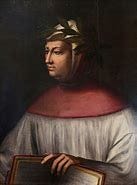

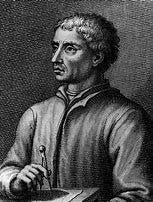



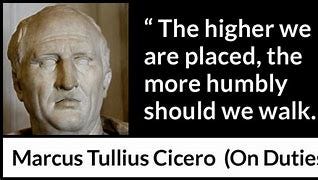

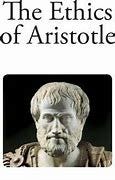
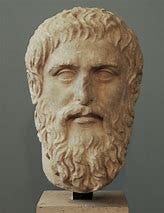
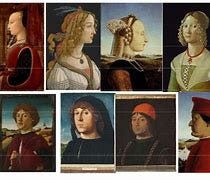

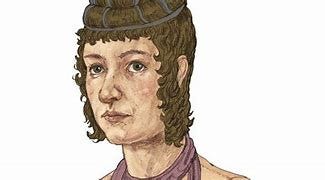
The civic dimension you focus on here is very interesting. I never gave much thought to that side of things, though it was the era of Macchiavelli so evidently some people were thinking about that kind of thing. It would certainly explain the era of thought leading up to Westphalia, and how that would be the beginning of the concept of the nation-state which in and of itself depends upon active citizens.
However, people in the Middle Ages did bathe. In the book I read about the Northern Crusades, the Teutonic Knights commonly report attacking Lithuanian bathhouses. I suspect that the idea of medieval people not bathing was the consequence of two things: 1) Queen Isabella bragging that she only took a bath once a year (poor Ferdinand); and 2) a part of the Protestant quest to discredit Rome by arguing that the Middle Ages were totally barbaric, and it was all because of Rome.
In God's Philosophers, the author does agree that rediscovering Cicero made a very big difference in the Renaissance. His work must have stood out since Cicero, though a politician, was neither bishop nor king, neither vizier nor majordomo.
I was really pleased to see a woman mentioned in this post, Mike. You must have worked hard to find her! I'm looking forward to the one on the Renaissance as I've just finished reading Christopher Hibbert's book on the Medici so I'm in the mood. Another lovely article. Thanks.